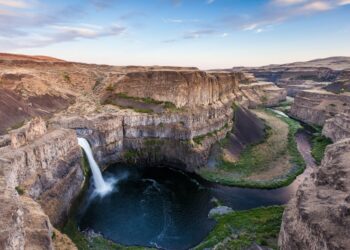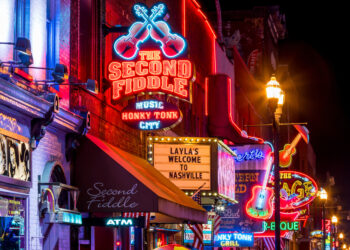Des Moines
Des Moines - The Capital City of Iowa
Short History of Des Moines
Des Moines, the capital city of Iowa, has a rich history that dates back to its founding in the year 1843. The city was initially established as Fort Des Moines by the U.S. Army to oversee the resettlement of Native American tribes. It served as a hub for the fur trade and played a significant role during the westward expansion era.
Des Moines grew steadily as pioneers and settlers arrived, drawn by the city's strategic location along the Des Moines River. The construction of railroads in the mid-19th century further fueled the city's development, transforming it into a major transportation and commercial center.
Over the years, Des Moines evolved into a thriving city with a diverse economy. It became an agricultural and manufacturing hub, and in the 20th century, it witnessed significant growth in the insurance and financial sectors. Today, Des Moines is not only the political and economic center of Iowa but also a vibrant cultural and arts destination.
FAQ for Des Moines
What is the best way to get to Des Moines?
Des Moines is easily accessible by air, with the Des Moines International Airport (DSM) serving as the primary gateway. The airport offers connections to major cities across the United States. Additionally, the city is well-connected by major highways, making it accessible by road.
What is Des Moines famous for?
Des Moines is famous for its rich history, vibrant arts scene, and as the political capital of Iowa. The city hosts the Iowa State Fair, known for its agricultural exhibits and entertainment. Des Moines also boasts a thriving insurance industry and is home to various renowned art and cultural festivals.
What are five interesting facts about Des Moines?
- Des Moines is home to the Iowa State Capitol, an architectural masterpiece with a stunning gold leaf-covered dome.
- The city is known for its extensive trail system, offering opportunities for outdoor activities like biking and hiking.
- Des Moines has been ranked among the top cities in the United States for quality of living and affordability.
- It is the birthplace of iconic American artist Grant Wood, known for his famous painting "American Gothic."
- Des Moines hosts the World Food & Music Festival, celebrating diverse culinary traditions from around the globe.
How did Des Moines get its name?
Des Moines derived its name from the Des Moines River, which flows through the city. The river's name is of French origin and translates to "of the monks." The French explorers named it "La Rivière des Moines" in honor of the Trappist monks who lived near the river during the 17th century.
What are some travel tips for Des Moines?
- Explore the downtown area, known as the Historic East Village, for its unique shops, restaurants, and art galleries.
- Visit the Pappajohn Sculpture Park, which showcases impressive contemporary sculptures in a beautiful outdoor setting.
- Don't miss the Iowa State Capitol tour to admire the stunning architecture and learn about Iowa's political history.
- Enjoy the picturesque Gray's Lake Park, offering walking trails, boating, and stunning views of the downtown skyline.
- Experience the vibrant nightlife scene in the Court Avenue District, with its lively bars, clubs, and live music venues.
Do I need a visa to visit Des Moines?
If you are a citizen of the United States, no visa is required to visit Des Moines as it is within the country. International visitors should check the visa requirements based on their nationality.
When is the best time to visit Des Moines?
The best time to visit Des Moines is during the spring and fall seasons when the weather is pleasant, and the city hosts various festivals and events. Summers offer warm temperatures, while winters can be cold with occasional snowfall.
Are there local customs I should know for Des Moines?
Drinking: Des Moines has a thriving craft beer scene, and it is common to find local breweries offering a wide range of beer options.
Greetings: People in Des Moines are generally friendly and polite. Handshakes are a common form of greeting in formal settings.
Public transit: Des Moines offers a public transit system with buses and a downtown skywalk system, making it convenient to explore the city.
Time Zone for Des Moines
Des Moines operates on Central Standard Time (CST) during the standard time period and Central Daylight Time (CDT) during daylight saving time.
Voltage/Plug Types
The voltage in Des Moines is typically 120 volts, and the plug type used is the standard Type A and Type B plugs, which are common in the United States.
Currency in Des Moines
The currency used in Des Moines is the United States Dollar (USD).
Are ATMs readily accessible in Des Moines?
ATMs are readily accessible in Des Moines, and you can find them at banks, shopping centers, and other convenient locations throughout the city.
Are credit cards widely accepted in Des Moines?
Yes, credit cards are widely accepted in Des Moines. Most hotels, restaurants, and stores accept major credit cards such as Visa, Mastercard, American Express, and Discover.
Can you use ApplePay and Google Pay in Des Moines?
Yes, you can use Apple Pay and Google Pay at various merchants in Des Moines that have compatible contactless payment systems.
How much do I tip in Des Moines?
Tipping etiquette in Des Moines is similar to the rest of the United States. Here are some general guidelines:
- Tipping at Restaurants/Bars: It is customary to tip around 15-20% of the total bill before tax.
- Tipping at Hotels: It is customary to tip hotel staff, such as bellhops and housekeeping, a few dollars per service.
- Tipping Taxis: It is customary to tip taxi drivers around 15% of the total fare.
- Tipping Tour Guides: If you take a guided tour, it is customary to tip the tour guide around 10-20% of the tour cost, depending on the quality of service.
Des Moines - City Information
| Founded | Population | Elevation |
|---|---|---|
| 1843 | 211,034 (source) | 292 feet (89 meters) above sea level |
Weather
| Seasons/Months | Celsius | Fahrenheit |
|---|---|---|
| Spring (March - May) | 10°C - 20°C | 50°F - 68°F |
| Summer (June - August) | 20°C - 30°C | 68°F - 86°F |
| Fall (September - November) | 10°C - 20°C | 50°F - 68°F |
| Winter (December - February) | -5°C - 5°C | 23°F - 41°F |



